Publications
Articles, publications, books, tools and multimedia features from the U.S. Institute of Peace provide the latest news, analysis, research findings, practitioner guides and reports, all related to the conflict zones and issues that are at the center of the Institute’s work to prevent and reduce violent conflict.
Question And Answer
Amid a Changing Global Order, NATO Looks East
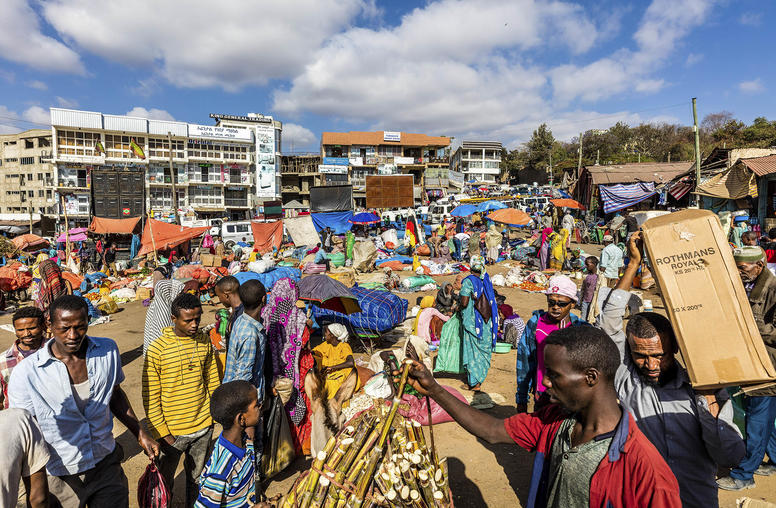
The Middle East’s Complicated Engagement in the Horn of Africa
The Gulf states increased assertiveness in the Horn of Africa has garnered substantial attention of late, particularly the proliferation of military installations and ports and the increase in military and economic aid. Less attention has been paid, however, to the role Middle Eastern countries have played in attempting to resolve some of the Horn’s most intractable conflicts, efforts that in some cases pre-date the more recent security and economic engagements.
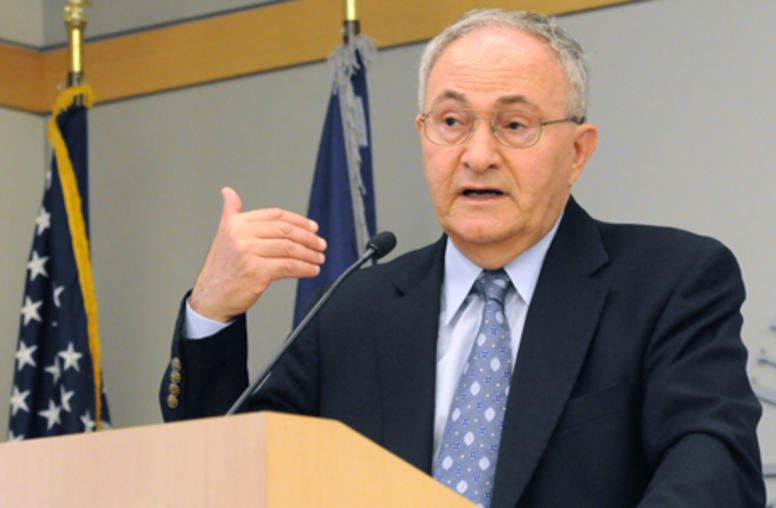
USIP-Wilson Center Series on Arab Spring Impacts Concludes
In the last of a five-part series of papers and meetings on “Reshaping the Strategic Culture of the Middle East,” regional specialist Adeed Dawisha told an audience at the U.S. Institute of Peace (USIP) on June 12 that, contrary to some expectations, no clear political or ideological breach has opened up between the revolutionary states of the Arab Spring and the region’s status quo powers.
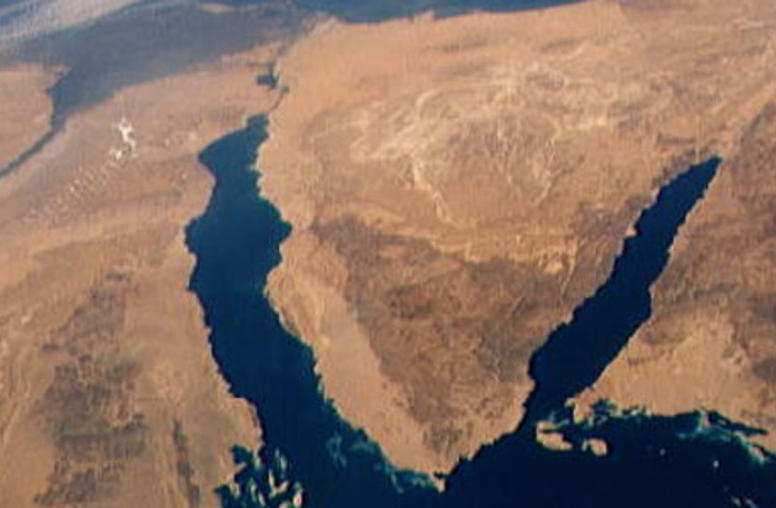
Through a Glass Darkly? The Middle East in 2012
In a period of tremendous change in parts of the world, we are asking USIP leaders, from board members to senior staff and experts, to explain the effects that events abroad and here at home will have on the United States, and the contributions the Institute can and does make. Steven Heydemann is USIP’s senior adviser for Middle East Initiatives.
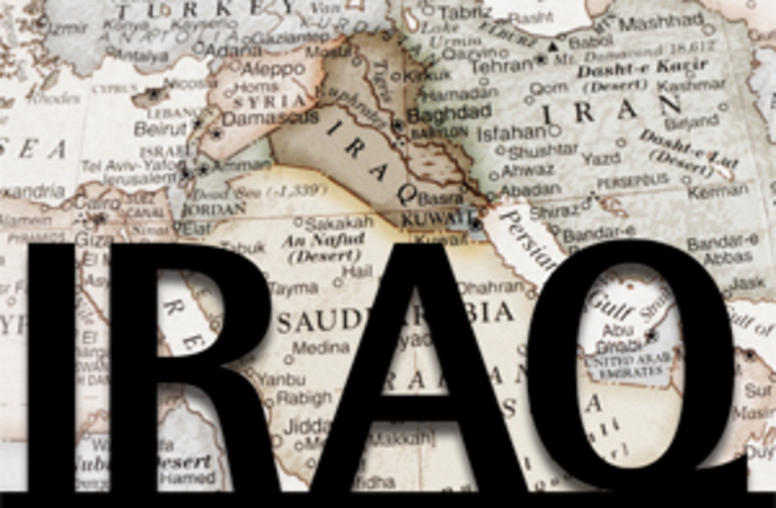
Iraq, Its Neighbors, and the United States
Iraq, Its Neighbors, and the United States examines how Iraq's evolving political order affects its complex relationships with its neighbors and the United States. The book depicts a region unbalanced, shaped by new and old tensions, struggling with a classic collective action dilemma, and anxious about Iraq's political future, as well as America's role in the region, all of which suggest trouble ahead absent concerted efforts to promote regional cooperation. In the volume's case studies, acc...
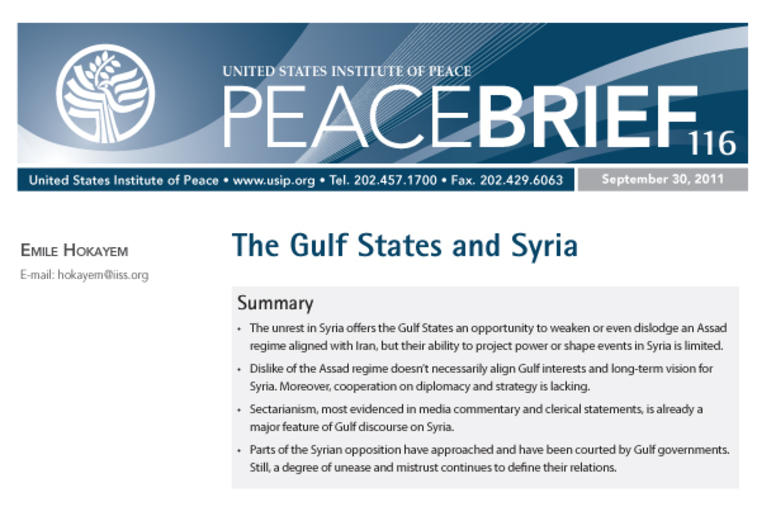
The Gulf States and Syria
The brief examines the interests, connections and dimensions of Syria's popular uprising in the Arab Gulf states. Emile Hokayem is the Senior Fellow for Regional Security at the International Institute for Strategic Studies-Middle East based out of Mamana, Bahrain.
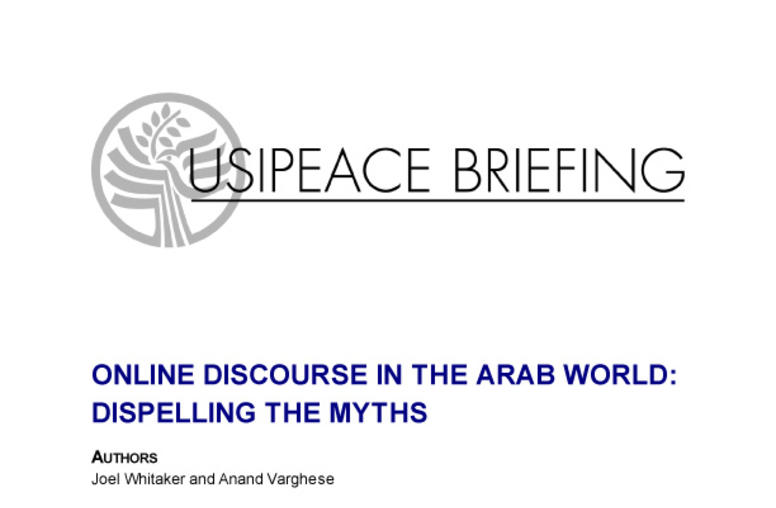
Online Discourse in the Arab World
A new USIP report examines online discourse in the Arab world and emerging trends of the blogosphere.
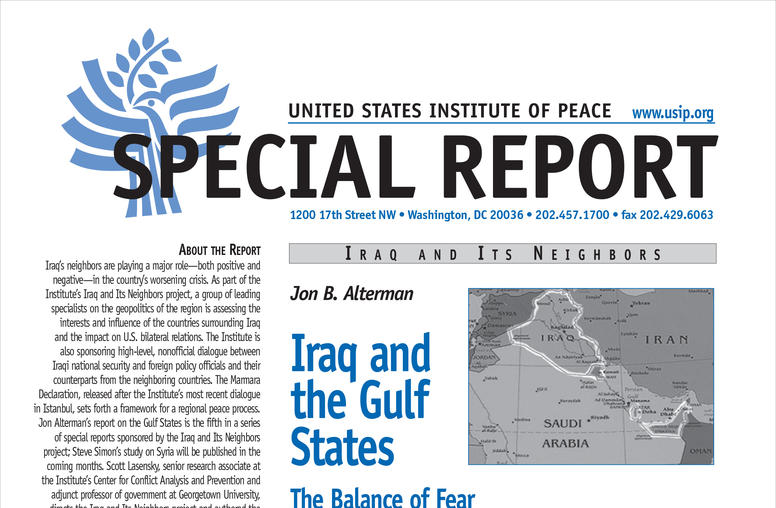
Iraq and the Gulf States: The Balance of Fear
Iraq’s Persian Gulf neighbors supported the U.S. invasion of Iraq in order to preserve the status quo--a weak and self-absorbed Iraq--rather than to impose a new one. However, the overthrow of Saddam Hussein and its aftermath have not brought stability to the Gulf States as much as they have shifted the most serious challenges from external threats (of a hostile Baghdad) to internal threats (the threat of conflict spillover from Iraq).